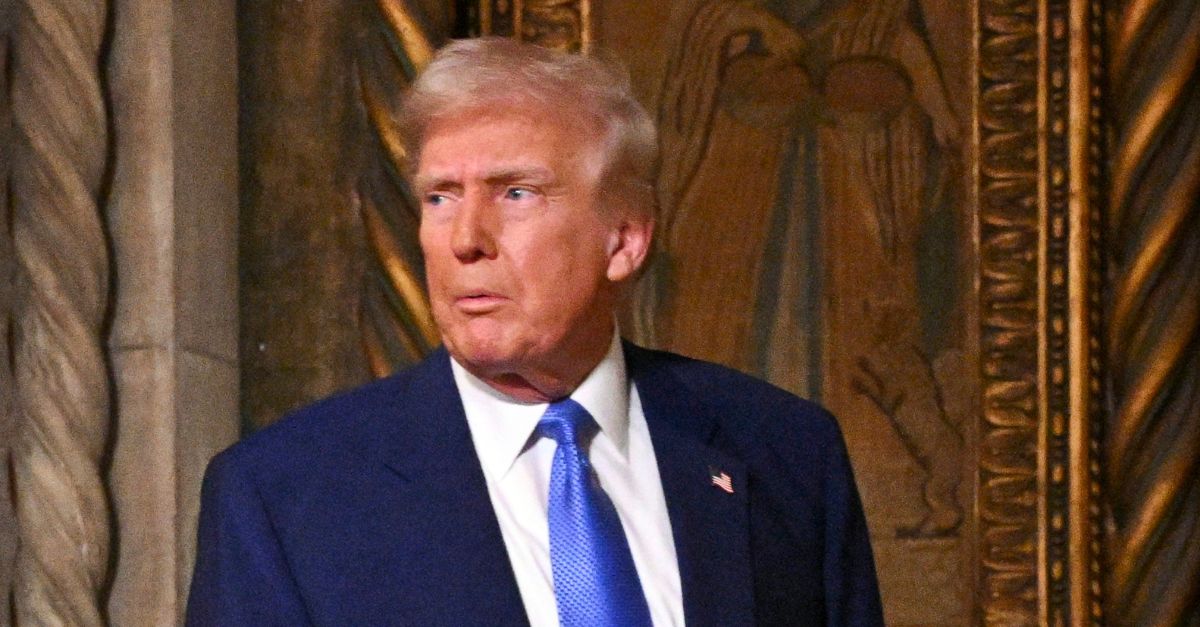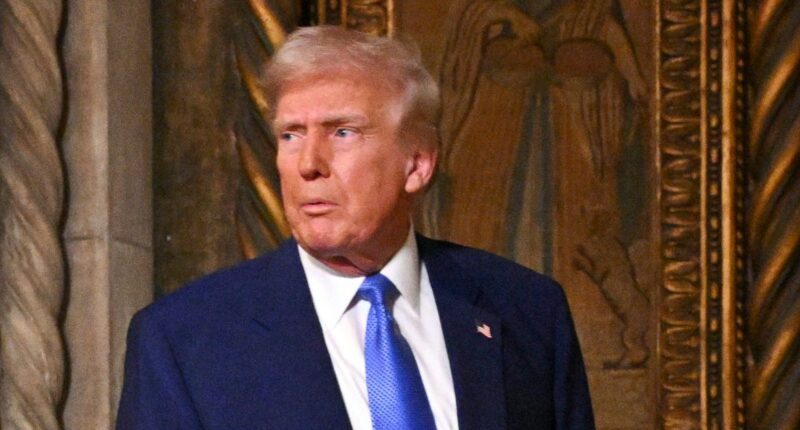
President Donald Trump departs after speaking at Mar-a-Lago in Palm Beach, Fla., Tuesday, Feb. 18, 2025 (Pool via AP).
After the U.S. Supreme Court stopped a deadline for the Justice Department to bring back a protected resident who was mistakenly deported to El Salvador under an 18th-century wartime authority by the Trump administration, the government is now trying to have the lower court’s order completely canceled. If this request is approved, Kilmar Abrego Garcia could be left stuck indefinitely at one of the world’s most infamous work prisons.
A Department of Justice (DOJ) attorney argued that it is necessary to cancel the order to prevent the district court from forcing impossible deadlines for diplomatic efforts, taking over important foreign relations functions, and going against the Immigration and Nationality Act’s restrictions on challenging removal grounds. The attorney emphasized that Garcia does not have the right to be in the United States.
Chief Justice John Roberts temporarily paused a ruling by U.S. District Judge Paula Xinis that required the DOJ to bring Garcia back to the U.S. within a little over three days, calling his deportation “illegal” in her order. Garcia, 29, was mistakenly sent to El Salvador on March 15 as part of Trump’s rushed deportations under an old law, which was later blocked by a federal judge for lacking proper legal procedures.
Garcia, a native of El Salvador, was in the U.S. with protected legal status at the time of his deportation. His wife and 5-year-old child are U.S. citizens.
Asserting that the administration is likely to win on the merits of the case, the Justice Department argues that the district court’s order demanding the return of Garcia “from a foreign sovereign” violates Article II of the U.S. Constitution.
“The court’s order expressly ‘DIRECTS Defendants to return Abrego Garcia to the United States,’ and ‘order[s] that Defendants return Abrego Garcia to the United States’ by 11:59 PM last night,” the DOJ wrote. “That order thus requires the United States to successfully persuade or compel the Government of El Salvador to release a member of a designated foreign terrorist organization who is on foreign soil under foreign control — and to do so by the district court’s impossible deadline.”
Notably, the government has proffered little, if any, evidence that Garcia was a gang member. He has no criminal record in the U.S. or El Salvador and has submitted sworn statements that he was fleeing El Salvador due to gang violence.
A Justice Department attorney last week even conceded to a federal judge that Garcia’s deportation was due to an “administrative error” and said the government “made a choice here to produce no evidence,” which “speaks for itself.” However, that attorney has since been suspended from working at the Justice Department.
“Those inappropriate statements did not and do not reflect the position of the United States,” the filing states. “Whether a particular line attorney is privy to sensitive information or feels that whoever he spoke with at client agencies gave him sufficient answers to satisfy whatever personal standard he was applying cannot possibly be the yardstick for measuring the propriety of this extraordinary injunction.”
According to the DOJ, another obstacle in returning Garcia to the U.S. is a “diplomatic arrangement with El Salvador.
“[T]his Office has been informed that El Salvador has its own legal rationales for detaining members of criminal associations and foreign terrorist groups like MS-13,” the filing states. “Even what respondents seem to contemplate — requesting release by El Salvador — still requires negotiations with the foreign sovereign that is currently holding Abrego Garcia.”
Love true crime? Sign up for our newsletter, The Law&Crime Docket, to get the latest real-life crime stories delivered right to your inbox.











